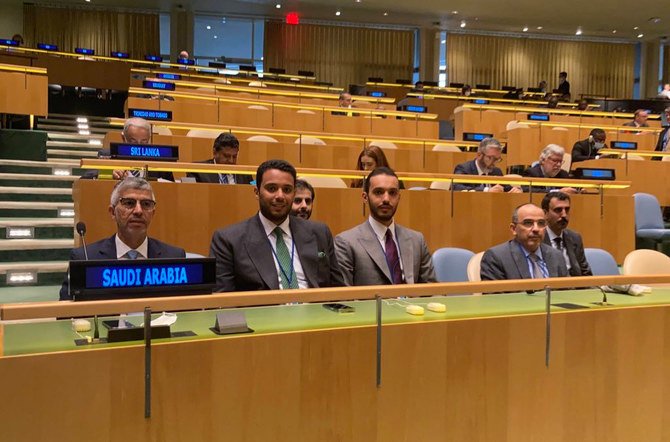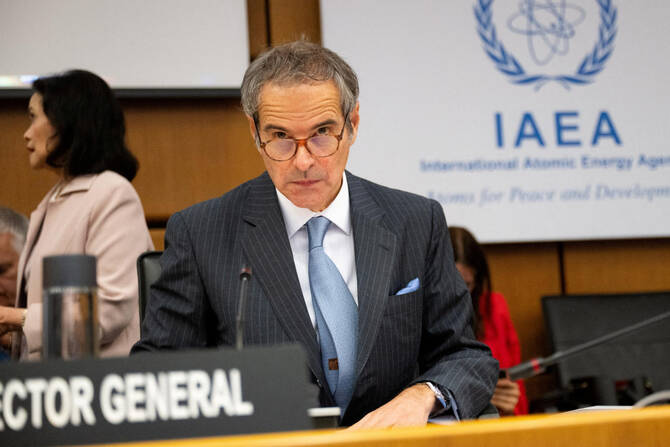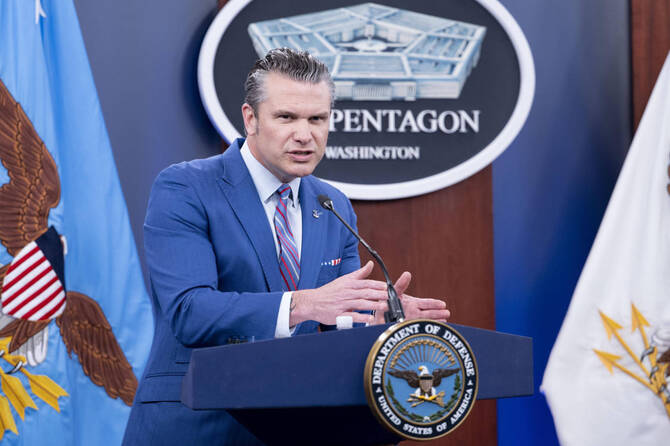Ephrem Kossaify
UNITED NATIONS: Iran’s lack of transparency with international nuclear inspectors, and its non-compliance with obligations under international nuclear agreements, constitute a threat to the non-proliferation regime and to international peace and security, according to Saudi Arabia’s new permanent representative to the UN, Abdulaziz Al-Wasil.
The ambassador expressed his country’s “deep concerns” over Iran’s nuclear program, citing the recent International Atomic Energy Report which cast doubt on the supposed peaceful nature of Tehran’s plans.
“The Kingdom of Saudi Arabia supports all international efforts to prevent Iran from possessing nuclear weapons,” he said.
Al-Wasil was speaking at the Tenth Review Conference of the Parties to the Treaty on the Non-Proliferation of Nuclear Weapons. State parties to the NPT gather every five years in New York to review the landmark, 50-year-old treaty, and the implementation of its provisions: Preventing the spread of nuclear weapons, destroying existing nuclear arsenals to achieve a nuclear-weapon-free world, and promoting peaceful uses of nuclear energy.
The last review took place in 2015, the year the Iran Nuclear Deal, formally known as the Joint Comprehensive Plan of Action, was signed. The current summit was supposed to take place in 2020, but was delayed by the COVID-19 pandemic.
Al-Wasil, who was elected vice president of the conference, said his country ascribed great importance to the NPT as a cornerstone treaty aimed at creating a world free of nuclear weapons. Saudi support for the treaty proceeds from the Kingdom’s belief that only peaceful cooperation between nations can lead to prosperity and stability.
The 1995 NPT Review Conference adopted a resolution on the Middle East, calling on states to take practical steps towards the establishment of the Middle East Weapon of Mass Destruction Free Zone. Member agreement was seen as key to securing the indefinite extension of the NPT.
The 1995 resolution on the Middle East remains valid until its objectives are realized, said Al-Wasil, stressing the collective responsibility of freeing the Middle East from nuclear weapons, while reiterating the Kingdom’s steadfast opposition to the proliferation of such weapons.
Al-Wasil thanked Kuwait for presiding over the second session of the Conference on Establishing a Nuclear-Weapons Free Zone in the Middle East, convened under the aegis of the UN, based on the 1995 NPT resolution, which aimed at negotiating a binding treaty toward that goal.
He reiterated his country’s regret that the 2012 conference, called for by the Middle East plan of action in the final outcome document of the 2010 NPT Review Conference, was never convened, stressing that such a decision now represents “one of the solutions that the international community is expected to activate in light of the failure of other international frameworks, in particular the JCPOA, to deter Iran from practices that threaten non-proliferation in the region.”
Another obstacle to achieving the universality of the NPT is Israel’s continued refusal to join the treaty, said Al-Wasil.
“This cannot be overlooked, because one of the pillars of the NPT is that it provides non-nuclear states with security safeguards against the use of atomic energy for non-peaceful purposes,” he said. “This guarantee is still missing in the Middle East so long as Israel refuses to join the treaty and subject all its nuclear facilities to the IAEA safeguards regime, ignoring the resolutions of the NPT Review Conferences.”
Al-Wasil also voiced his appreciation for the IAEA and its director general for their efforts in improving the agency’s capabilities to enhance its role in verifying and monitoring the integrity of state parties’ nuclear programs.
The Saudi envoy also spoke of states’ right to develop peaceful nuclear programs, reaffirming his country’s commitment to a national policy that emphasizes the highest standards of transparency and reliability in the development of atomic energy for civilian purposes.
He also stressed the importance of compliance of all state parties with all the provisions of the NPT, and the placement of all nuclear facilities under the IAEA’s safeguard system for atomic energy.






















